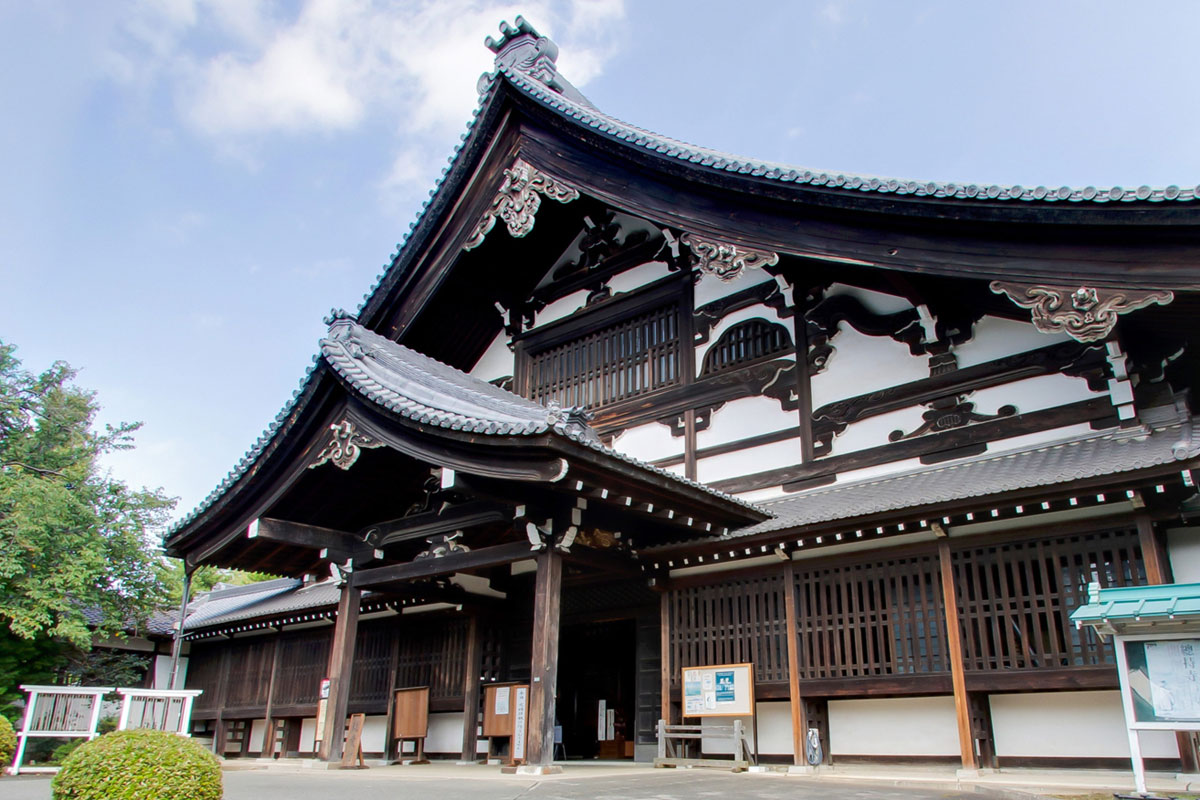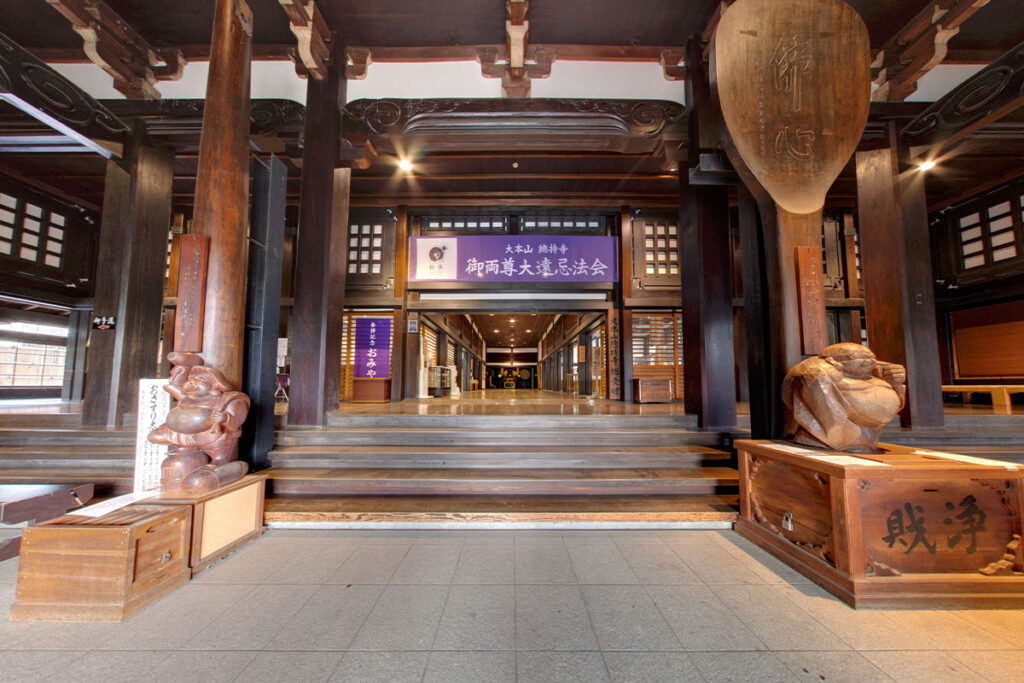
Kōshaku means the space filled with fragrances. In the sutra “Yuimagyo Kōshakubon”, Kōshaku is the name of Nyorai (Tathagata) living there. In Zen tradition, Kōshaku means Kitchen and stockyard. At the center entrance, there is a calligraphy of [Kōshakudai] written by the 3rd abbot of Sojiji, Rev. Bokuzan Nishiari. At the end of the central corridor, you find the biggest wooden Daikokusonten (Mahakala) in Japan. It is believed that enshrining this statue brings good fortune.
In Sojiji, we have kitchens to cook for monks and guests at Jihōkaku and Sanshōkaku. Giant rice paddle and wooden pestle welcome you at the entrance.

Further on the corridor there is the general reception for temple visits and ceremonies on the right, a shop and a rest place are on left side.